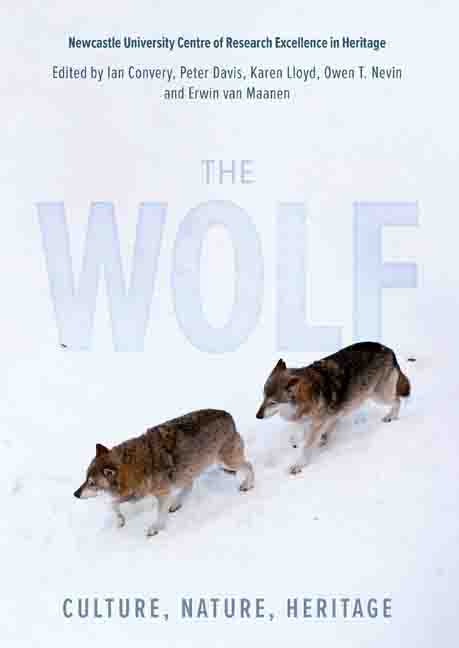Book contents
- Frontmatter
- Dedication
- Contents
- List of Illustrations
- Preface and Acknowledgments
- List of Abbreviations
- Poem: Trophic Cascade by Camille T Dungy
- Foreword
- Part I Imagining the Wolf
- Part II What Makes the Wolf
- Part III Return of the Wolf
- Part IV Personal Encounters
- Afterword: The Ecological Disadvantage of Living on an Island
- Glossary
- List of Contributors
- Index
21 - Landscapes of Coexistence: Livestock and Wolves in the Mountains of North Spain
Published online by Cambridge University Press: 10 January 2024
- Frontmatter
- Dedication
- Contents
- List of Illustrations
- Preface and Acknowledgments
- List of Abbreviations
- Poem: Trophic Cascade by Camille T Dungy
- Foreword
- Part I Imagining the Wolf
- Part II What Makes the Wolf
- Part III Return of the Wolf
- Part IV Personal Encounters
- Afterword: The Ecological Disadvantage of Living on an Island
- Glossary
- List of Contributors
- Index
Summary
In the distance there is an audible clanging of metal, a strange atonal concert played on sheep bells. The sound builds to a crescendo when suddenly, out of the mist, appear a flock of seven hundred sheep flanked by four huge dogs striding lankily around the flock. They seem languid, light on their feet, their large tongues hanging out between their canines. They wear leather collars with long studded metal spikes that augment their already threatening appearance, but these collars are to protect their necks from the bite of a wolf. They are mastiffs, a breed of dog that instinctively lives with farmed animals as part of a sheep-dog pack. They bark, but it's not threatening, it's more conversational. However, I wouldn't want to confront them.
Below I hear a Land Rover churning its way up the switchbacks of the steep mountain track. As it pulls up, the doors open, and a husband, wife and son, accompanied by several small dogs, jump out together. The mastiffs and sheep belong to this Spanish family, who farm in a Cantabrian village high in the Picos de Europa mountains. The son walks off into the mist with some dogs, to return ten minutes later with all the sheep and the mastiffs. He knew exactly where they were. The family know the behaviour of their animals in a way that is only possible by having an intimate relationship with the mountains.
The Picos de Europa are a limestone mountain range, located in the centre of Northern Spain with peaks of up to 2500m. It overlaps into three autonomous regions, Cantabria, Asturias and Castilla y Leon. In this complex karst landscape, farmers have traditionally shepherded sheep, goats, cattle and horses. This chapter is based on the author's experience (via recorded field diaries, interview notes and personal reflections) of running research-based undergraduate field courses in the area for 20 years, and in the process talking with many farmers, National Park rangers and local inhabitants. In particular, two farming families were interviewed in 2018, 2019 and 2022, and, over the course of my visits, I got to know these two families, and their relationships with the mountains, very well.
- Type
- Chapter
- Information
- The WolfCulture, Nature, Heritage, pp. 239 - 248Publisher: Boydell & BrewerPrint publication year: 2023

